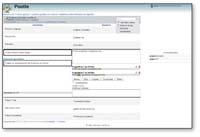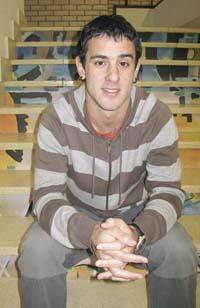Pootle, friend of translations
2009/03/01 Kortabitarte Egiguren, Irati - Elhuyar Zientzia Iturria: Elhuyar aldizkaria

Google Summer of Code is a program in which free software projects and students participate. Google puts money, of course. The program awards $4,500 to each student who has successfully developed a free software project.
Among the free software projects, Julen Ruiz Aizpuru opted for the Pootle translation system. Through pootle, program translations can be done through the web and in collaboration with group work. This does not mean that the software automatically completes the translation, but it is an environment that helps the translator.
For this, on the one hand, it has a series of checks that allow to detect errors in the translation. For example, if at the end of the original text there is a point and you forget to put that point, Pootle warns the user that that point is missing. It also offers terminological support. For example, when the user is returning a web browser, he can load the terminology related to the websites and, while it is being translated, words related to the current translation unit will appear to him.
On the other hand, some languages use quite special characters that are not on the keyboard. Pootle offers the possibility to click directly with the mouse in these characters.
Pootle organizes its files in languages and projects, a language can have several projects and a project can be assigned to several languages. It has a simple and simple file editing interface that as a web tool allows you to participate in the translation process from anywhere.

Improvements
However, not everything is sweet within Pootle, and there are aspects to improve and other aspects that would deserve to be added. All of them have been analyzed by UPV computer Julen Ruiz Aizpuru in Google Summer of Code.
The objective of the project has been to introduce improvements in the free tool called Pootle, focused on free software and localization. Within this framework, it has had a clear objective: to improve the user experience. It proposes a series of improvements. On the one hand, he added the alternative source language. In fact, most translations are done in English as an original language, and sometimes people are not encouraged to translate because they do not know English well. In other cases, for issues related to terminology, it is helpful to see how it has been translated into another language. In fact, in many cases, in the messages and menus of the programs appear words like file, edit, view .. and as in the case of the word view, only in English, we do not know exactly if it is a name or a verb, that is, what form it is and whether it should be seen or translated as vision. The incorporation of an alternative source language allows to alleviate these problems.
In addition, instead of writing directly to the translation file, there is the possibility of making recommendations in Pootle. These recommendations are accepted or rejected by project managers. But if before another translator has recommended what? To avoid useless work, the Gipuzkoan computer scientist has allowed translators to see recommendations.
You have also made some improvements to the search feature. The current search engine is quite simple, and if you want to look for such usual concepts as Firefox, you get insufficient results. This improvement will be able to define the search field and changes in the display of results are expected.

It has finally been integrated into the open tran. Open-tran is a website that collects numerous translations already made. A kind of giant translation memory. In a translation unit, meaningful words are searched in local terminology to subsequently display a list of related words. The integration in the open tran will allow obtaining the results of this service.
All these improvements were carried out by computer scientist Julen Ruiz Aizpuru at last year's Google Summer of Code and served to work on the end of career project. All these changes are integrated into the latest version of Pootle (http://librezale.org:8080/).



Gai honi buruzko eduki gehiago
Elhuyarrek garatutako teknologia




